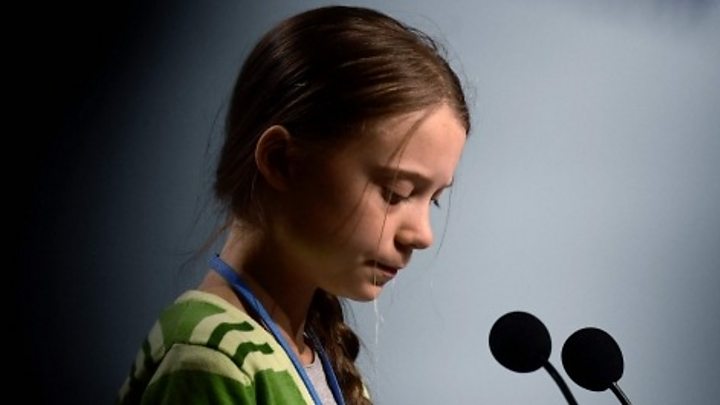You know you love Greta Thunberg. So much so that you always purposely misspell her name “Great” like me.
Look at those cheeks!

So you will be happy to know that Greta’s family has a book coming out in March titled Our House is on Fire: Scenes of a Family and a Planet in Crisis, which chronicles the pint-sized climate activists rise to global stardom.

Excepts from the book have been released to the public which gives insight to Greta’s life and helps explain her unyielding devotion to climate change.
There have been a number of rumors floating around that Greta does not look her age due to her diet. Her mother explains in the book that Greta suffers from selective mutism, an eating disorder and autism.

Though now she has no problem making sure everyone hears what she has to say, at age 11 she began to suffer from severe depression which caused her to refuse to either eat or speak.
“She cried at night when she should be sleeping. She cried on her way to school. She cried in her classes and during her breaks, and the teachers called home almost every day. Svante had to run off and bring her home to Moses, our golden retriever. She sat with him for hours, petting him and stroking his fur. She was slowly disappearing into some kind of darkness and little by little, bit by bit, she seemed to stop functioning. She stopped playing the piano. She stopped laughing. She stopped talking. And she stopped eating.”
Eventually, she was diagnosed with Asperger’s, which is a form of autism, as well as obsessive-compulsive disorder.
It all changed for the better when she was shown a video in school about pollution in school, which put her on the path to climate activism.

However, when you pair the obsessive-compulsive diagnosis with her obsession for climate change, you have to wonder if her wanting to change the world is the result of a real passion for it or if it’s just another thing that she can’t let go of.
And if that’s the case, by supporting her cause and giving her a platform, is the world just being complicit in enabling her behavior instead of getting her the help she needs?









